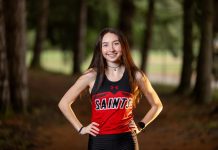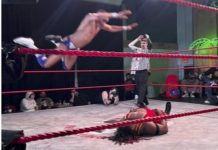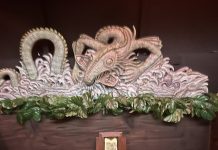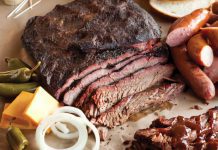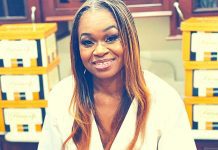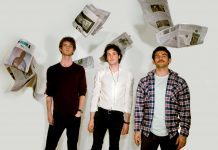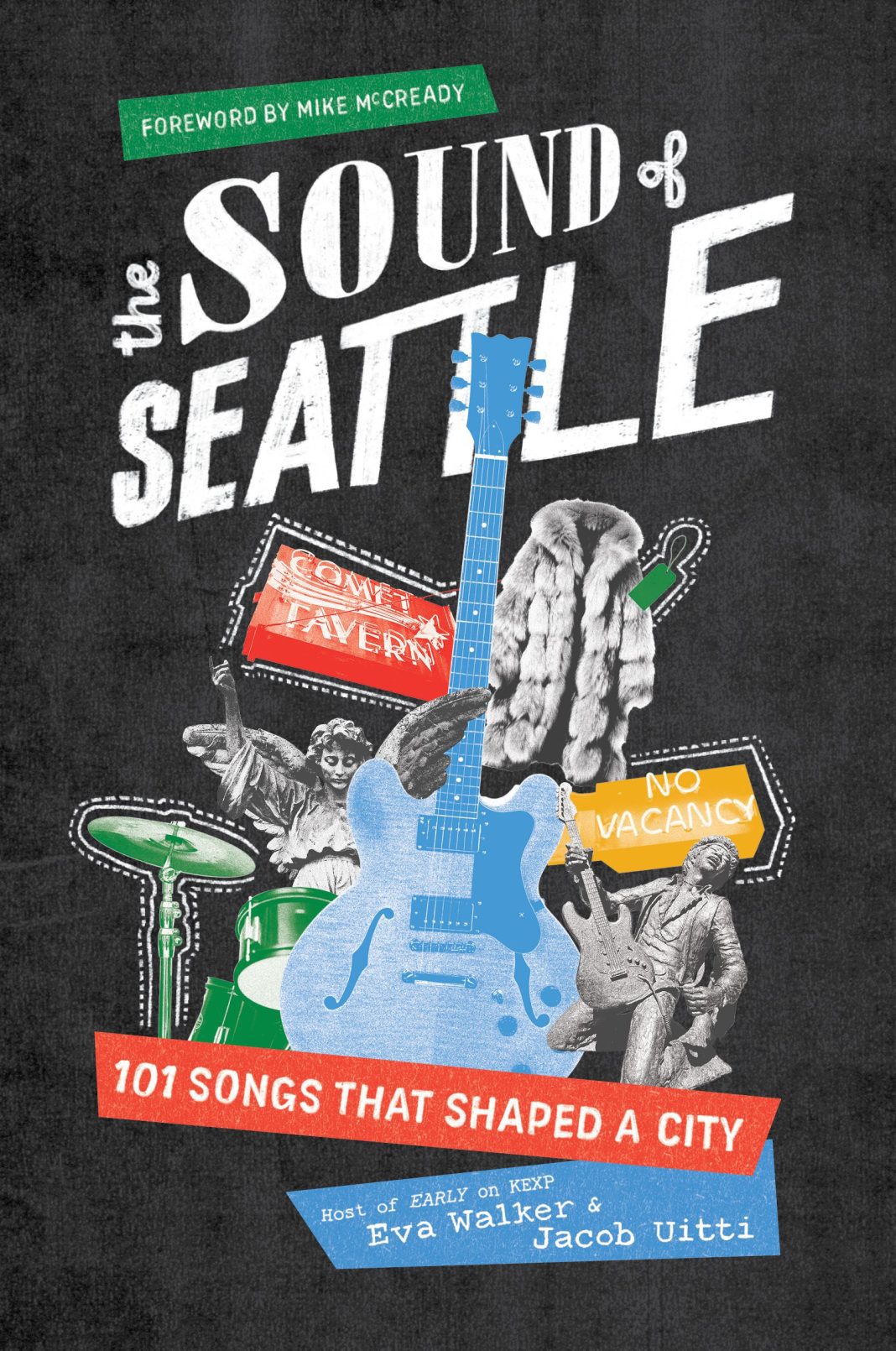Submitted by The Sound of Seattle: 101 Songs That Shaped the City
Today, the newest book to hit the market about Seattle music has arrived. From the Pacific Northwest publisher Sasquatch Books comes “The Sound of Seattle: 101 Songs That Shaped the City.” Written by KEXP DJ and frontwoman for the local rock band The Black Tones, Eva Walker, and her husband, journalist Jake Uitti, the new title celebrates and explores 80 years of Seattle-area music, from Ray Charles to Heart to Nirvana to Ayron Jones.
Highlighting the songs, local hotspots, and decade-specific interview essays, like the one below, The Sound of Seattle also arrives on the couple’s wedding anniversary (totally by coincidence). Here below, the authors wanted to share an excerpt from the new book with readers so check out this essay with Mary Lambert, famous for her vocal feature on the Macklemore & Ryan Lewis song, “Same Love.” Lambert talks about the 2010s in the city, the relationships she formed at the time and how the era shaped the rest of her life.
Mary Lambert on the Collaborative 2010s
When Mary Lambert thinks back on her time coming up in Seattle, she remembers her friends first. Around the turn of the 2010s, Lambert says, there was a prevailing sense among the many talented artists that she knew and collaborated with that a rising tide helped all boats. It was this mentality that fused bonds between artists. In Ballard, for example, via the many open mics and venues, the Head and the Heart blossomed. And in Capitol Hill another act was rising up: Macklemore & Ryan Lewis. Lambert collaborated with the hip-hop duo and became globally famous and socially impactful, thanks to the song “Same Love” on the Grammy Award-winning album “The Heist.” But even with all the accolades and acknowledgments, Lambert is grateful most of all that her friends believed in her.
“For me,” says Lambert, “the best barometer, the best metric of success is the idea that the people I respect and am in community with like my shit. That they like and respect me and want to collaborate with me. That feels like success to me.”
But Lambert isn’t the only one who came up at this time who feels that way. Indeed, for many, it was a way of life. To wit, Lambert thinks about her friend and collaborator Hollis Wong-Wear. The two formed a friendship in their teens in the local arts organization Youth Speaks Seattle, along with this book’s coauthor, Eva Walker. (Rapper Travis Thompson is another alum who came out of the impactful organization some years later.) Wong-Wear was a “connector,” she says, someone who put on shows, networking functions, and more. And it was Wong-Wear who rose to fame with her performance on the Macklemore & Ryan Lewis song “White Walls,” who brought Lambert into the studio one day to record the “Same Love” chorus. The track would later become part of the unofficial soundtrack for LGBTQ+ rights like marriage equality.
“When Hollis called me to do ‘Same Love,’ I’d just graduated from college,” says Lambert. “I was waiting tables in Alki, bar-tending in Belltown. I worked downtown as a barista. It was a really bonkers time. It was weird. I even had a day off.”
The call was emblematic of the times. If I win, you win. In fact, that philosophy might have been a key to The Heist’s success. Each track featured one local standout after another, from Allen Stone to Lambert to Wong-Wear and Ben Bridwell. It was a local greatest hits album of the 2010s as much as anything else. For Lambert, the opportunity to work with Macklemore & Ryan Lewis changed her life. But it was also the result of a lot of hard work and dealing with many highs and lows. Lambert worked as a musician and also as a poet, often competing in slam showcases. She attended Cornish College of the Arts. She endured some of the worst of life and had stories to tell.
“There’s so many great storytellers in Seattle,” she says. “That’s a really common thread here. It’s what drew me into working with [Macklemore] too. What I loved so much about ‘Same Love.’ I think there’s an edge of honesty in Seattle, too—I mean, think about Kurt.”
Growing up, Lambert learned about music from her mother, a singer-songwriter in her own right. Lambert began writing songs around six years old and always knew she wanted to be a performer. While pursuing music seemed impossible at times, she nevertheless began to study it, intending to teach middle school orchestra. At Cornish, she was inspired by a community of vibrant, inventive artists, like Thunderpussy’s Molly Sides, world-renowned accordionist Jamie Maschler, composer-performer Maiah Manser, America’s Got Talent finalist Jimmie Herrod, and experimental harpist Melissa Achten-Klausner.
Today, Lambert is an icon to many, providing the voice to a major shift in society toward legalized gay marriage. It’s an almost unimaginable reality for someone who’d felt so much pain for growing up gay, to find herself performing with Madonna and helping to marry same-sex couples on MTV. Carrying on the tradition of queer artists in the city that includes many, including drag icons and musicians of all styles.
“Having my career shaped largely around aspects of my life or identity that have felt shameful or wrong has been gratifying and healing,” Lambert says. “To know that people are looking to me, taking my workshop courses, listening to my music as this salve for queer longing—that’s really special.”












